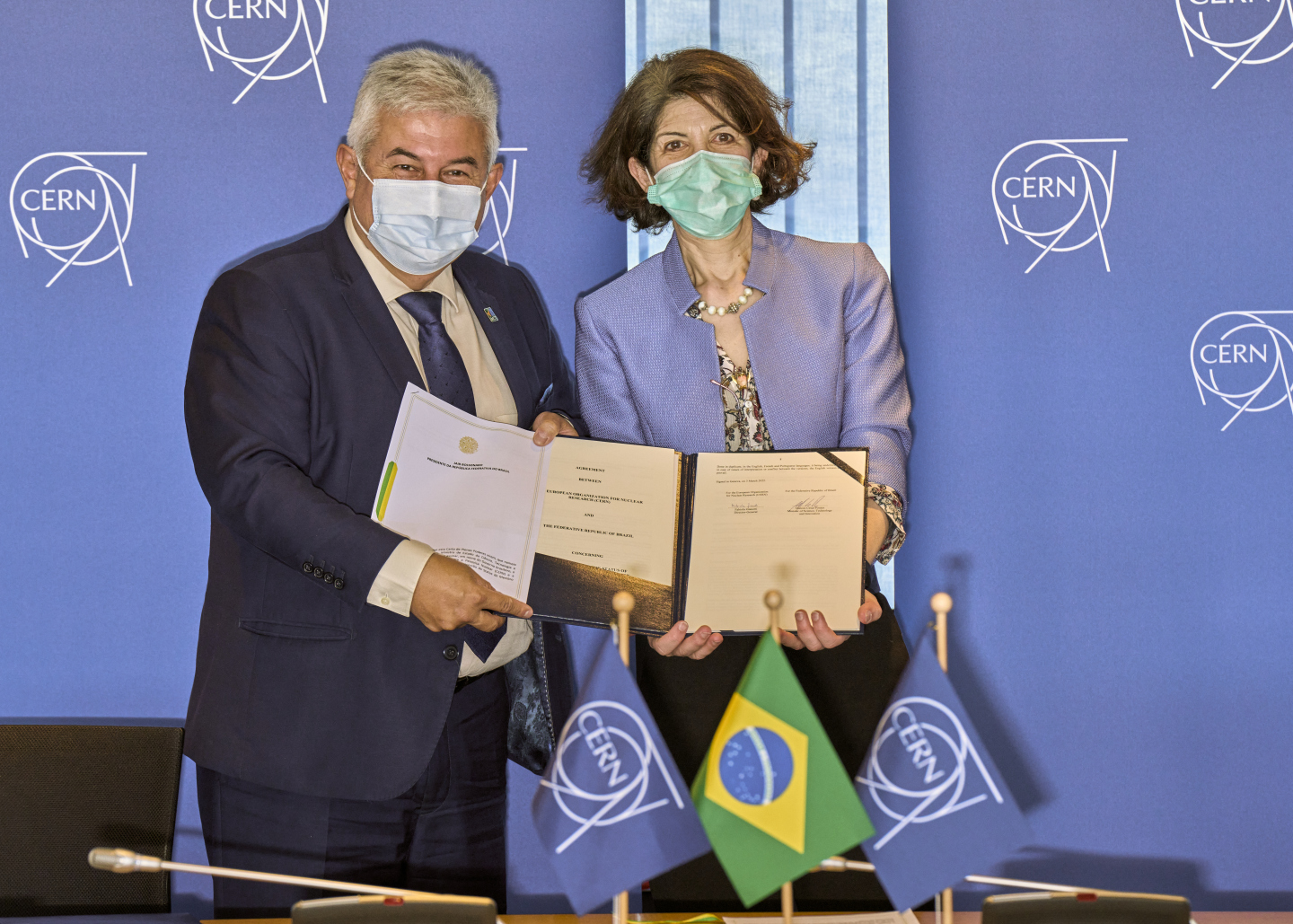Brazil becomes an associate member of CERN
On March 3, 2022, the Director General of CERN, Fabiola Gianotti, and the Brazilian Minister of Science, Technology and Innovation, Marcos Pontes, signed an agreement admitting Brazil as an Associate Member State of CERN. The Associate Membership will take effect once Brazil has completed all necessary accession and ratification processes.
Brazil will be the first country in Latin America to join CERN as an Associate Member State. “We are very pleased to welcome Brazil as an Associate Member State. Over the past three decades, Brazilian scientists have contributed substantially to many CERN projects. This agreement allows Brazil and CERN to further strengthen our collaboration, opening up a wide range of new and mutually beneficial opportunities in fundamental research, technological development and innovation, and education and training activities”, said Fabiola Gianotti, Director General of CERN.
“Brazil's accession to CERN Associate Membership creates a robust framework for collaboration in research, technology development and innovation. The Brazilian scientific community has collaborated with CERN since its creation. Being an Associate Member State will provide new opportunities for our scientists and engineers to participate in the activities carried out at CERN. Our industry will also benefit from participating in tenders for R&D contracts and the provision of services and materials. I am sure that this partnership will take the Brazilian science, technology and innovation sector to a new level of development”, said Marcos Pontes, Minister of Science, Technology and Innovation.
Formal cooperation between CERN and Brazil began in 1990 with the signing of an International Cooperation Agreement, allowing Brazilian researchers to participate in the DELPHI experiment at the Large Electron-Positron Collider (LEP). Today, Brazilian institutes participate in all the main experiments of the Large Hadron Collider (LHC): ALICE, ATLAS, CMS and LHCb. They are also involved in several other R&D experiments and programs such as ALPHA, ProtoDUNE on the Neutrino Platform, ISOLDE, Medipix and RD51.
Brazilian citizens also participate very actively in CERN's training and outreach programs, including the Summer Student program, the Portuguese-Language Teacher program and the Beamline for Schools competition. In the last decade, Brazil's experimental particle physics community has doubled in size. In the LHC's four main experiments alone, more than 180 Brazilian scientists, engineers and students collaborate in areas ranging from hardware and data processing to physical analysis.
In addition to particle physics, CERN and Brazil's National Center for Research in Energy and Materials (CNPEM) have also formally cooperated since December 2020 on R&D of accelerator technology and its applications. As an Associate Member State, Brazil will participate in CERN Council and Finance Committee meetings. Brazilian citizens will be eligible for positions of limited duration, fellowships and scholarships. Brazilian companies will be able to compete for CERN contracts, increasing opportunities for industrial collaboration in advanced technologies.
(1) Marcos Pontes served as Minister of Science, Technology and Innovation of Brazil until March 31, 2022.
Source: CERN
